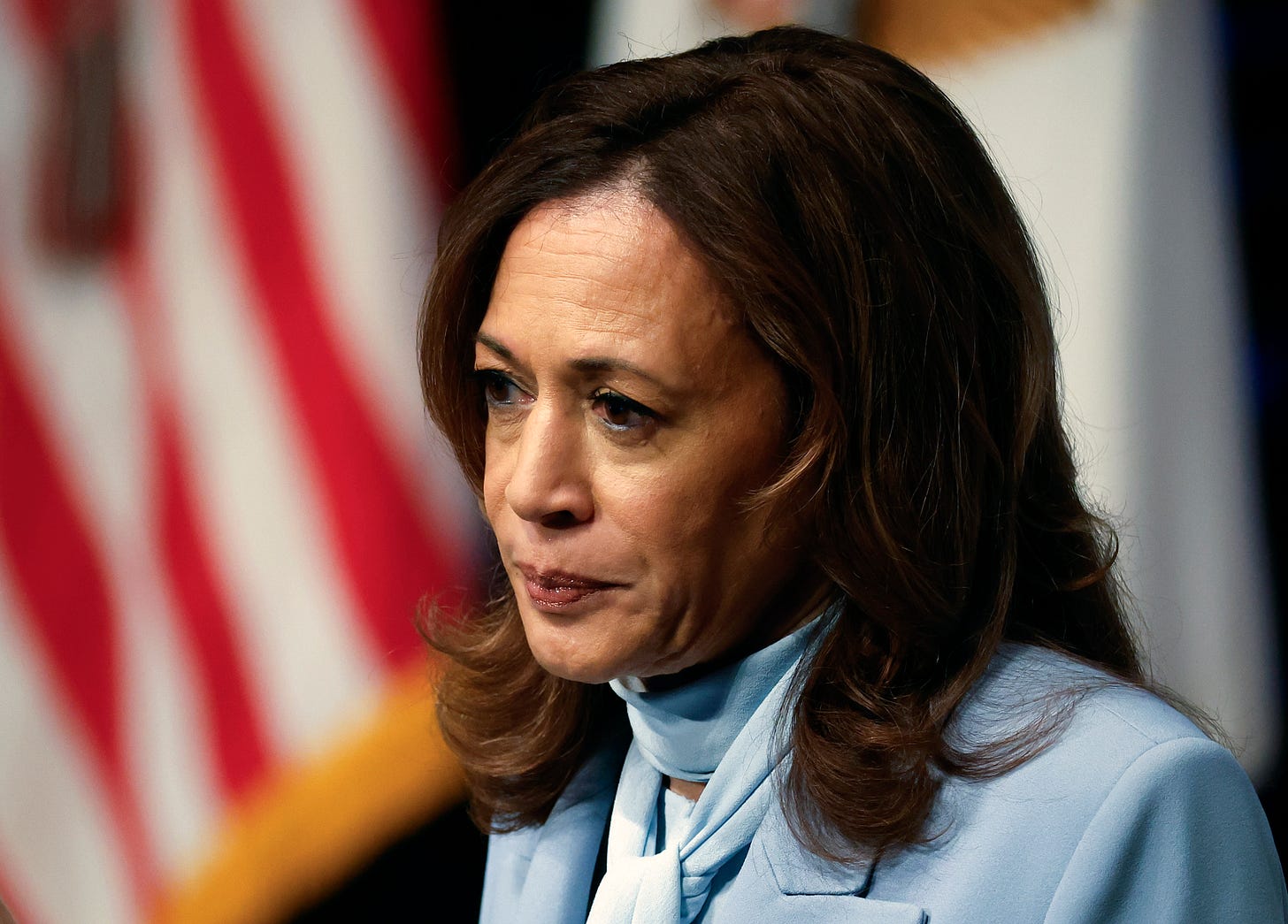Harris May Be Screwed If Nebraska Changes Its Electoral College Rules
Maine Democrats were supposed to come to her rescue. But a top state official says they likely missed their window.

A TOP MAINE DEMOCRAT acknowledged on Thursday that there’s likely not enough time to change the state’s Electoral College rules before the election to counterbalance Nebraska Republicans trying to alter their own state’s rules to benefit Donald Trump.
Democratic House Majority Leader Maureen Terry told The Bulwark in a brief phone conversation that the party had “very possibly” missed a window to alter the state’s Electoral College allocation to a winner-take-all format.
That could leave the party, and Vice President Kamala Harris, with a much narrower path to the presidency.
Maine is one of two states that currently awards Electoral College votes to presidential candidates based on both who prevails statewide and how candidates fare in individual districts. Nebraska is the other.
But Nebraska Republicans have begun ramping up previously dormant efforts to switch to a strict winner-takes-all format, with surrogates from Donald Trump’s campaign pressuring holdout Republicans to vote for the measure.
Should they succeed, it would likely deprive Harris of a critical Electoral College vote from the Omaha district, which would close off one of her easiest maps to victory. With one electoral vote from Nebraska in her column, picking up just Pennsylvania, Michigan, and Wisconsin while losing the rest of the swing states would be enough to get Harris to 270 electoral votes. Without that Omaha vote, that map would put the election in a 269-269 deadlock, leaving it to the House of Representatives to adjudicate. Since Republicans control more state delegations, that scenario would likely result in a Trump win.
Over the past few months, national Democrats had soothed their anxiety about this type of scenario by pointing to Maine, where their party controls both the legislature and the governor’s office. Back in April, Terry had said that if Nebraska changed its system, Democrats in her state would “be compelled to act in order to restore fairness.”
But under Maine’s constitution, a bill can only become a law 90 days after it’s passed. There are 46 days until the November 5 election and 87 days until electoral votes are set to be cast. Democrats could circumvent the 90-day window if they have a two-thirds vote in each chamber. But they don’t have that.
“So who knows where that lands us,” said Terry. “We haven’t had any discussions with any of our Republicans.”
Terry declined to elaborate further, noting that she had just finished up a long shift for her other line of work (she operates a granola business). Her office, as of Thursday afternoon, had not put out a statement.
The push to change Nebraska’s Electoral College rules began earlier this year but languished in the state’s GOP-controlled legislature. Gov. Jim Pillen, who endorsed the idea, pledged to try again through a special session. This week, Sen. Lindsey Graham traveled to the state to push holdout Republicans to embrace the measure. One of Graham’s likely targets is State Sen. Mike McDonnell, who is from Omaha. McDonnell switched his party affiliation from Democrat to Republican earlier this year, but he also said he was firmly committed to maintaining the state’s current rules for allocating Electoral College votes. However, a Nebraska Examiner article on Graham’s visit said that some Republicans who attended a meeting with the senator at the governor’s mansion “saw a shift” in how McDonnell was approaching the matter.
“Five people attending the meeting confirmed that McDonnell told the group he was looking for a way to get to yes, though he expressed concerns,” the article states.
McDonnell did not return a request for comment.




